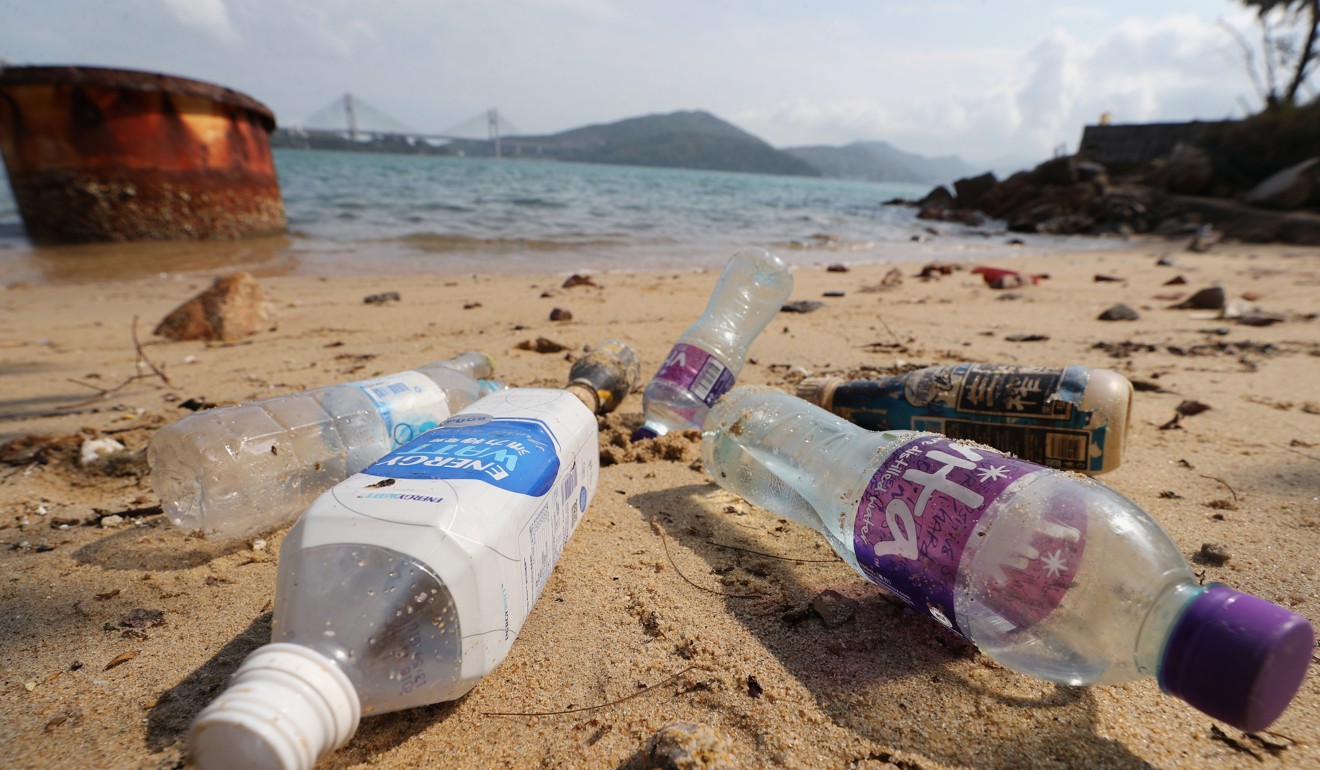
Greenpeace in health warning after plastic found in a fish species popular for Chinese meals
Fragments were found in 60 per cent of wild flathead grey mullet examined by The Education University of Hong Kong – prompting Greenpeace warning over potential of putting toxins on the eating table
Plastic fragments have been found in nearly two-thirds of a fish species commonly consumed in Chinese meals, prompting a green group to warn on Monday about the potential environmental and health risks of pollution.
Microplastics were discovered in 60 per cent of wild flathead grey mullet examined by The Education University of Hong Kong, with an average of 4.3 fragments in each fish. One had even ingested 80 pieces. These plastics are used to make single-use cutlery, straws, condiment bags, cups and bottles, the researchers said.
The discovery followed a shock study by US-based non-profit Orb Media, which found 93 per cent of 259 bottled water samples from nine countries contained microplastic particles.

“Mudflats and sediments under the sea are like restaurants for marine species,” Greenpeace campaigner Chan Hall-sion said. “When both of them are polluted with microplastics, that will become the food for the flathead grey mullet and other types of marine animals.”
Plastic pollution: 3 tonnes of trash picked up on beaches for Earth Day
She also cited previous studies which found that oysters from Lau Fau Shan in Hong Kong’s New Territories and the mouth of the Pearl River were also affected.
Last month, Hong Kong University of Science and Technology’s division of life sciences found that microbeads – manufactured microplastics used in products ranging from facial scrubs to toothpastes – ended up in the digestive tracts of fish and other marine creatures.
These tiny particles are small enough to be washed down drains and flushed into the sea, the researchers said.
An earlier Education University study found that Hong Kong beaches recorded an average of 5,000 pieces of microplastics per square meter – 2.4 times higher than the concentration in the United States.
About 12.7 million tonnes of plastic waste are poured in the ocean in the world annually, with Hong Kong being one of the key spots, according to Greenpeace.
Hong Kong throws away 5.2 million bottles every single day
“Several studies have already exposed the existence of microplastic in many marine habitats and species, which increases the chance of putting toxins on the eating tables along the food chain,” Chan warned.
According to the US National Oceanographic and Atmospheric Administration, plastic debris kills around 100,000 marine mammals annually, as well as millions of birds and fish.
The short- and long-term health effects on humans from ingesting microplastics are not yet fully understood, it said.
The latest study examined 30 captive and 30 wild flathead grey and found the latter contained microplastics, extremely small pieces of debris in the environment resulting from the disposal and breakdown of consumer products and industrial waste.
Most of the plastic fragments and fibres were in the digestive system of the mullet.
In Hong Kong, as much as 86 per cent of plastic waste ends up in landfills, the countryside or surrounding waters as marine waste, according to environmental group The Green Earth.
Scientists accidentally create possible pollution solution – an enzyme that eats plastic
Some countries have already pledged to ban single-use plastic items, including Scotland which will stop the use of plastic straws by the end of 2019. Taiwan announced a ban on all plastic bags, straws and utensils by 2030.
The Green Earth urged the Hong Kong government to follow suit, and to begin by banning hard-to-recycle plastics such as foam boxes. Producers should also be made to recover a certain percentage of their plastic waste, while free drinking water should be provided in public areas to discourage the consumption of plastic bottled water.

